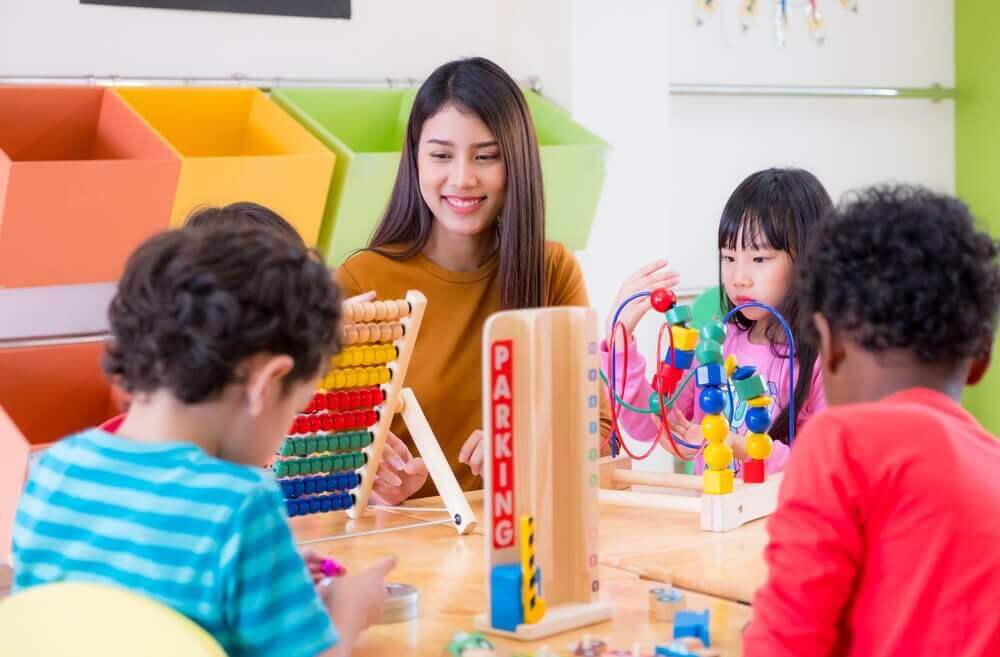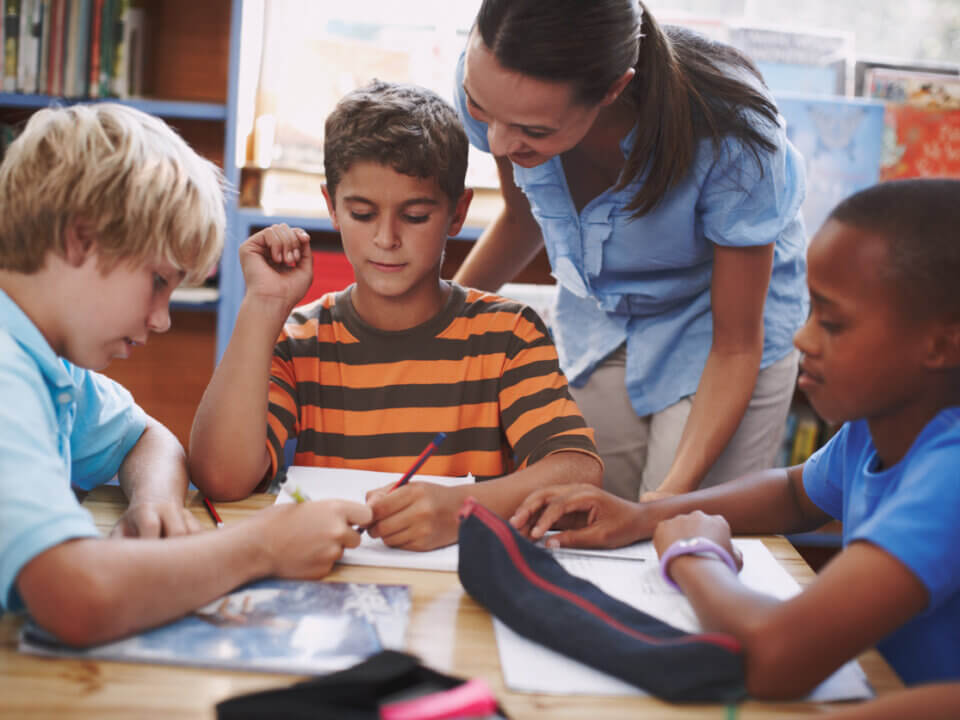Are Our Preschoolers Playing Enough (Or Too Much)?
Published on 29 May 2019 by Edu Aid | For Parents | Preschool

Are our preschoolers playing enough? Or too much? This is the question both educators and parents ask themselves time and again. The problem with the Singapore preschool industry is that there is currently no one standard way of teaching or learning. It seems like there are multiple schools of thoughts in how our preschoolers should learn and grow. Most parents are left drifting and clueless – forever trying to figure out the best curriculum and the best schools for their children. Others just send their children to the nearest school and hope for the best, believing any curriculum at least teaches their children something. However, recently there is an increasing popular belief that children should learn through play, and many schools have started to incorporate more play into a huge part of their curriculum.
What Is “Learn Through Play” In School
“Learn Through Play” is definitely a great initiative to implement in preschool. In essence, it is much like “hands-on learning” or learning without even knowing that you are learning! When children play, they are fully engaged as a person. They are active both physically and mentally. This method of engaging preschoolers is undeniably much better than instructional classroom learning.
However, the general concern of parents sending their children to such schools is this – Are Primary One curriculum “Learn Through Play” as well? How smoothly can our preschoolers who have played very hard transit to Primary One curriculum. Will they be able to adapt to long hours of classroom learning? Must they sit down all the time? Are they expected to write properly by Primary One? Have our preschoolers been playing too much?? These are real, legitimate questions! Many K2 parents who start to panic after Primary One registration then rush to sign their children up for Primary One preparatory course. Now we ask ourselves – is it necessary for parents to go through all these?
[Read: Is My Preschooler Prepared for Primary One? – A Comprehensive Guideline]
Academic Enrichment in Preschool
This brings us to the other extreme – academic enrichment in preschool. Since our children’s brains grow the most during this window period, should we focus more on academic enrichment to get them prepared for all the years of academic success following preschool? There’s just so much to learn, if we really think about it! We have coding for preschoolers, right brain training for preschoolers, reading and writing classes for preschoolers, science labs for preschoolers – all these classes out there to get our children best equipped for the prime Primary School they hope to enroll in.
Now this begs the question – are our preschoolers playing enough? Are they developing healthily as an individual? Are we develop their IQ too much and neglecting how they are doing socio-emotionally? Are they getting too pre-occupied with themselves and ignoring the rest of the world? Again, how can they initiate into Primary School with healthy friendships?
Parenting is hard eh? Here’s what we propose – Let learn be learn, and let play be play. Let’s get our preschoolers to strike a balance between learn and play.
Let Learn be Learn, Play be Play
How is this proposal different from the “Learn through Play” implementation in some preschools? You ask. The problem with “Learn through Play” is not too much the ideology. The ideology is good. Rather, it is the implementation. It is one thing to communicate the ideology to preschool teachers and quite another to get them to execute forth such an ideology in a classroom setting effectively. In this sense, different schools with different teachers end up with different ways of making this work well. Most teachers are preached too much about this ideology they swing to the other extreme – just let the kids play! Well, that’s not what we send our kids to school for! Our kids end up ill-prepared for Primary School. That’s also not what “Learn through Play” is about.
We suggest that schools be meant for learning, and other times be meant for free play. This makes life much easier for our teachers too! Some teachers get so stressed about this whole fuss about “Learn through Play” they don’t even dare to get the children to do more writing than just a few simple strokes. Is this helping our children?
Reading and writing are part and parcel of education discipline. Our children need to read and write more. They may start writing in preschool or in Primary school, but they eventually need to pick up writing, unless we want our whole nation of children to transform to a “good typing” or “good tapping” generation with terrible handwritings. Our schools need to make the children write more and read more. These can’t be mastered through play. Therefore, we suggest that reading and writing work should be a heavy emphasis in preschools, though not for long hours.
Research from all over has shown us the benefits of free play for preschoolers. Preschoolers brains work like a sponge. They absorb more information than we expect them to! They catch the little nuances of their playmates’ expressions, they quickly understand the concept of gravity when put on a slide, the effects of weight when playing on the see-saw, they learn to smell the rain coming, they learn about speed when they run. Children must play, especially preschoolers. Let our preschoolers get as much free-play time as they can. No learning objectives, no structures. Let them decide what to do. That’s how growth happens. Preschoolers must play.
This proposal sounds simplistic. But maybe, this should be the ideal – to keep our preschoolers lives as simple as can be!
Conclusion
Are you an anxious parent wondering if you have done enough for your preschooler? The concept of “More is Less” applies here. Think simple – let your child play, and let your child learn.
You don’t have to let him learn more than is required. Some schools teach astronomy and structures of dinosaur bones. We wonder if this is necessary at this age? Rather, we believe mastery of language is most important now because this is the foundation to acquiring and mastering new knowledge when they advance to Primary School. Leave astronomy to Primary School. Leave coding to Primary School.
Help him get a good grasp of language first. This is the only learning necessary at this age. Reading and writing work is supremely important at this stage. Then, encourage free play, and more interactions with extended family members instead of sending him for classes after classes. Your child will be well prepared for academic success. If, for some reasons your child is averse to learning reading and writing, look no further than Edu Aid Tuition Agency to find a suitable teacher to motivate him.





